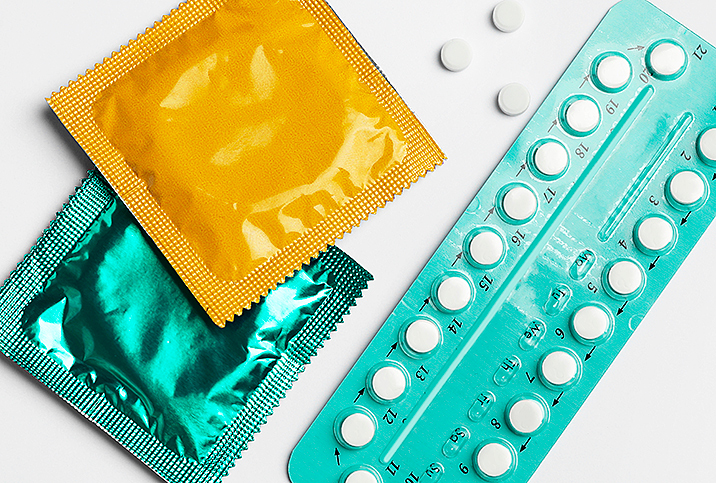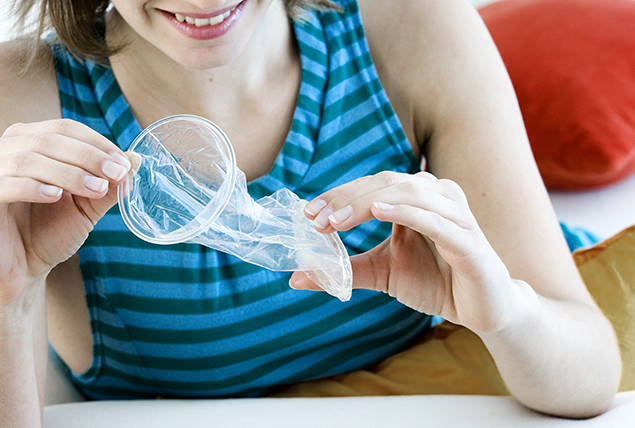Sex and the Solo Traveler

Traveling solo in a foreign country can be one of the most rewarding and freeing experiences of a lifetime. Within this, the freedom to pursue romance can be an integral part of the journey overall. However, it may be overwhelming to care for your sexual health while abroad.
Pre-planning for your sexual health needs abroad is essential, especially when you're traveling solo. Here are some tips on how to safeguard against potential risks before even boarding the plane.
Know before you go
Whether you plan on getting intimately acquainted with the locals or not, you should be prepared for any sexual encounter. Your list of must-haves should include contraceptive methods, condoms and dental dams for protection against sexually transmitted infections (STIs), and a supply of over-the-counter medication for yeast infections and urinary tract infections (UTIs).
About four to six weeks before you leave for your trip, consult your doctor about any sex-related questions or issues you may have. Better to get the consultation done on familiar territory rather than having to navigate the healthcare system in a new country or deal with a language barrier.
More on Vacation Sex
- Things to Consider for Vacation Sex: If making love is on your to-do list during a trip, do your research and maintain safety.
- The Allure of Hooking Up With People on Vacation: What happens in Vegas, stays in Vegas: Freedom and fantasy are a fun combination
- Protecting Yourself from STDs: Looking to get busy abroad? Knowledge is the key to protecting yourself and your partners.
Naturally, if you take medication, you will want to have a good supply on hand—enough for your planned trip, plus a little extra in case of delays or an emergency. If need be, ask your doctor to adjust your prescription to allow you to acquire the amount you'll need for the trip, particularly of any birth control methods. Make sure the prescriptions are kept in their original containers and are clearly labeled.
You should consider getting an official doctor's note about your health conditions and medications because some medicines that are legal in the U.S. are considered controlled substances in other countries.
Before your trip, check in with the International Narcotics Control Board (incb.org), which has a list by country of regulations for travelers carrying medicines. If your medication is banned or there are issues with it, your physician may prescribe another medication or provide official documentation that outlines your treatment plan and communicates that you are under a doctor's care.
Get tested and vaccinated
An estimated 1 in 5 travelers says they have had sex with a new partner while traveling in a foreign country, according to the International Journal of Infectious Diseases, as reported by the CDC. Sexual contact of any kind puts participants at risk of contracting an STI, and that's certainly not the kind of souvenir you want to take home from your journey.
Since you cannot always tell if someone is infected, or even if you are infected, it is best to prevent STIs whenever possible by using condoms and other barrier methods.
A reliable pre-departure step is to get tested for potential STDs and STIs, so you will know before you go if you have any condition that requires treatment.
Naturally, if you take medication, you will want to have a good supply on hand—enough for your planned trip, plus a little extra in case of delays or an emergency. If need be, ask your doctor to adjust your prescription to allow you to acquire the amount you'll need for the trip, particularly of any birth control methods. Make sure the prescriptions are kept in their original containers and are clearly labeled.
You should consider getting an official doctor's note about your health conditions and medications because some medicines that are legal in the U.S. are considered controlled substances in other countries.
Before your trip, check in with the International Narcotics Control Board (incb.org), which has a list by country of regulations for travelers carrying medicines. If your medication is banned or there are issues with it, your physician may prescribe another medication or provide official documentation that outlines your treatment plan and communicates that you are under a doctor's care.
Get tested and vaccinated
When traveling, always take the proper precautions with future sexual partners you may encounter along the way: Use a condom every time, from the beginning to the end of all sexual encounters, replacing it with a new one every half-hour if necessary. Be sure to pack your own condoms for the trip since you can't be sure of the quality of brands you don't know in other countries.
Consider getting vaccinated for hepatitis A and hepatitis B before your trip, and ask your doctor about the HPV (human papillomavirus) vaccine. Note that some of these vaccines require a schedule of around six months with a series of three doses before you are fully vaccinated.
Birth control under control
Gaining access to various forms of birth control while abroad can be complicated. In addition, specific birth control method storage requirements can dictate your plans, depending on the climate of the countries you plan to explore. For example, the ring can be kept at room temperature (about 68º-77º F) for four months, but climate may affect its efficacy. (Ask your physician whether or not to refrigerate your ring or other birth control in hot climates.)
Since your body might need a few months to adjust to a new form of birth control, give yourself the time to explore options with your healthcare provider well before your journey. Bring an ample supply and leave a copy of any prescriptions at home with a friend or loved one who could fill it and send it to you in case of an emergency.
Keep all condoms and birth control methods in your carry-on in case of loss or delay with your checked luggage. If for any reason you suspect you might have been exposed to an STI, seek medical assistance early. The American embassy in the country you are visiting may be able to assist you with a list of English-speaking physicians and pharmacies nearby.
Pre-planning will make those romantic encounters abroad a lot more fun and freeing. Don't wait until you spot the hottie at the Trevi Fountain to think about protection, and don't find yourself trying to speak Malay to explain your UTI. Plan ahead for your sexual health to make the most of your travels.
An estimated 1 in 5 travelers says they have had sex with a new partner while traveling in a foreign country, according to the International Journal of Infectious Diseases, as reported by the CDC. Sexual contact of any kind puts participants at risk of contracting an STI, and that's certainly not the kind of souvenir you want to take home from your journey.
Since you cannot always tell if someone is infected, or even if you are infected, it is best to prevent STIs whenever possible by using condoms and other barrier methods.
A reliable pre-departure step is to get tested for potential STDs and STIs, so you will know before you go if you have any condition that requires treatment.


















